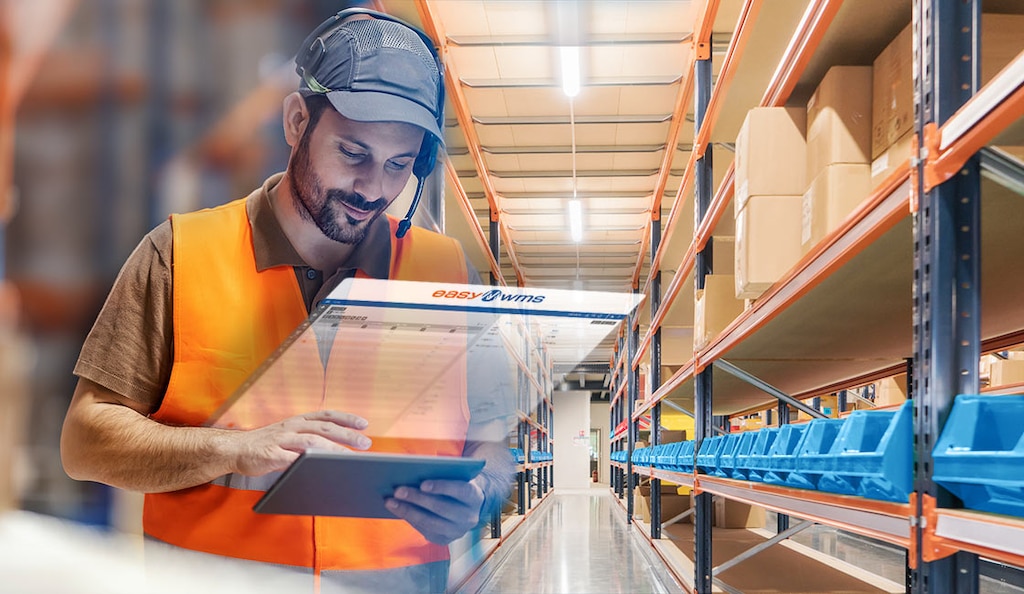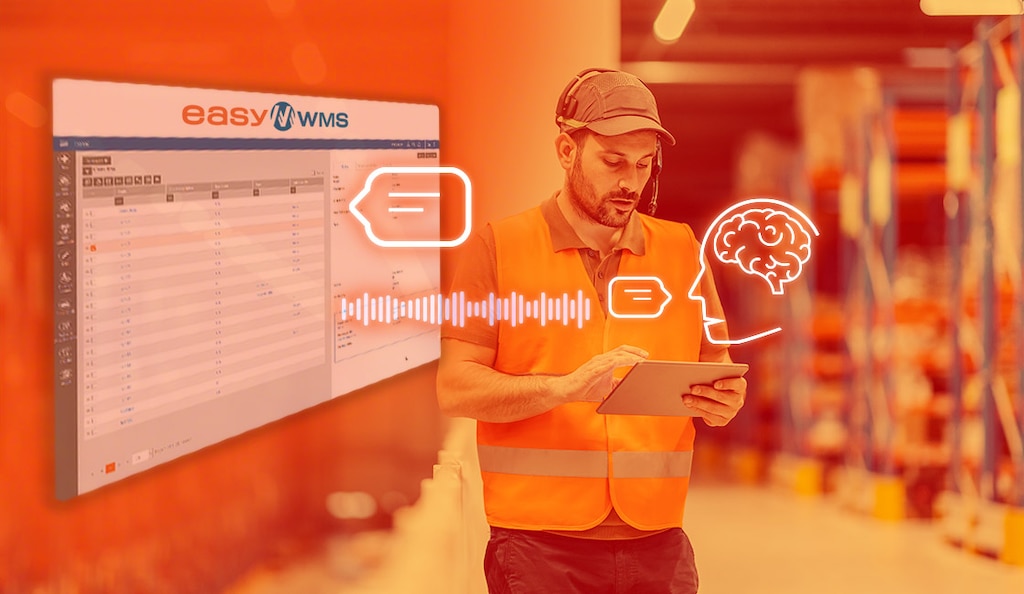
Voice-directed warehousing: advantages and applications
Logistics facilities and distribution centers (DCs) that often deal with high demand peaks — e.g., those dedicated to e-commerce — can use voice-directed warehousing to streamline the flow of goods.
What is voice-directed warehousing?
Voice-directed warehousing is a management system that guides operators through the order picking process by means of audible instructions. Mobile devices or headsets tell employees what to do, freeing up their hands so they can perform their tasks as ergonomically and efficiently as possible.
Generally, these voice-picking tools are integrated with a warehouse management system (WMS) or can be synced with one. Voice-directed picking technology has the potential to increase productivity and accuracy while making operators’ jobs easier.
Applications of voice-directed warehousing
In addition to enabling employees to work hands-free for extended periods, voice-directed warehousing helps streamline many of the most common operations in DCs:
- Goods receipt
- Picking
- Storage
- Product sorting
- Loading
- Audits
- Replenishment
- Cycle counting
- Returns and reverse logistics

Advantages of voice-directed warehousing
Voice picking systems are also compatible with other technologies such as barcode and RFID tag scanning. This facilitates process automation and provides many other benefits:
- Satisfied customers. Faster order fulfillment leads to quicker deliveries and happier users.
- Compatibility with other systems. In addition to RFID technology, pick-to-voice warehouse systems are compatible with WMS and ERP software.
- Flexibility. Voice-directed warehousing enables configurable workflows to meet specific requirements.
- Less travel. Receiving instructions by headset cuts down on unnecessary trips.
- Fewer errors. Verbal confirmation of each pick minimizes mistakes.
- Productivity. Operators optimize their processes and workflows by receiving verbal prompts.
- Accuracy. Thanks to pick by voice and its integration with a WMS, inventory control is simpler and more exact.
- Occupational safety and health. Being able to use both hands to move and open boxes and lift materials reduces the likelihood of accidents.
- Visibility. The ability to communicate with warehouse pickers and supervise operations in real time helps manage demand peaks effectively.
How do voice-directed warehousing systems work?
In most cases, operators wear a headset equipped with a microphone connected to a mobile device. As the WMS (or ERP software) receives orders, they are sequenced and released for processing. The voice-directed warehousing system then tells the operator where to go and what to do.
For example, it could instruct the worker to go to a particular aisle and pick a specific number of units of a SKU. Once there, the employee indicates the aisle they are in and the bin they are picking the items from. By maintaining constant communication and verbally confirming actions performed, errors decrease dramatically. The system works — even in busy warehouses abuzz with activity.

AI and voice-directed warehousing
Voice-directed picking technology uses speech recognition software to process operator responses. This is achieved through advancements in artificial intelligence and, more specifically, in the field of conversational AI.
When should you implement voice-directed warehousing?
Pick-to-voice warehouse systems are advantageous in all logistics facilities. But they’re particularly recommended for centers that manage large numbers of different barcoded items. They can also be used in production lines and stores, for instance. Voice-picking systems significantly facilitate work in cold-storage and freezer warehouses by saving operators from having to remove their gloves to operate a keyboard or touchscreen.
Companies that use voice-directed warehousing
More and more businesses from different sectors are incorporating voice-directed warehousing into their logistics operations. These are some organizations that employ it:
- Boland. Costume and party accessory retailer Boland has a catalog of more than 5,000 SKUs that it distributes across Europe. Operators in its Netherlands warehouse use voice-directed picking technology, which enables them to work 10% more quickly in high-bay order pickers.
- Idaho State Liquor Division. This US government agency that regulates alcohol sales in the state oversees order fulfillment through voice-directed warehousing. This way, operators can pick bottles from the shelves in a more agile way.
- Brivio & Viganò. This logistics services provider specializing in food employs voice-directed warehousing in its 7.4-acre center in Pozzuolo Martesana, Italy, equipped with seven cold stores.
Optimizing voice-directed warehousing with a WMS
Voice-directed warehousing became popular towards the end of the 1990s, and today, it has even more potential. This is due to its accuracy and versatility when integrated with smart barcodes and warehouse management software such as Interlake Mecalux’s Easy WMS.
Thinking about streamlining your operations? At Interlake Mecalux, we can help you implement voice-directed warehousing technology to boost your logistics processes. Contact us to benefit from our extensive intralogistics experience, built up since 1966.
